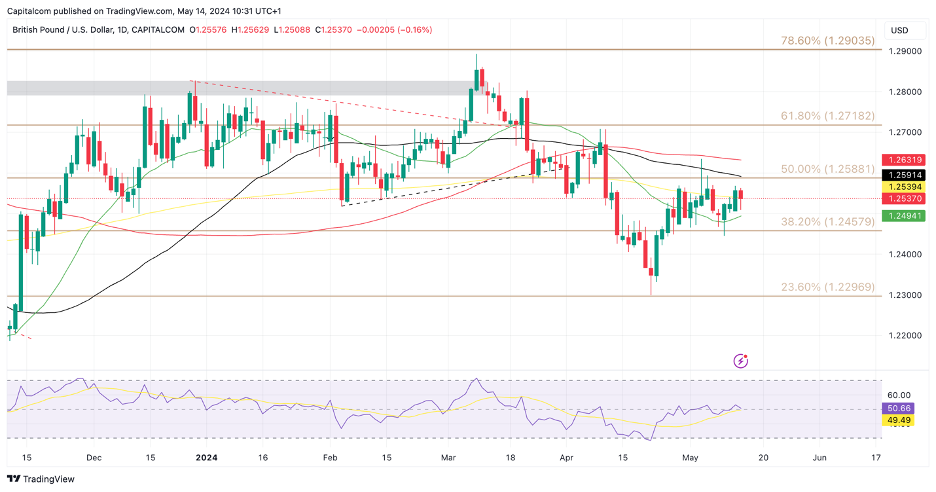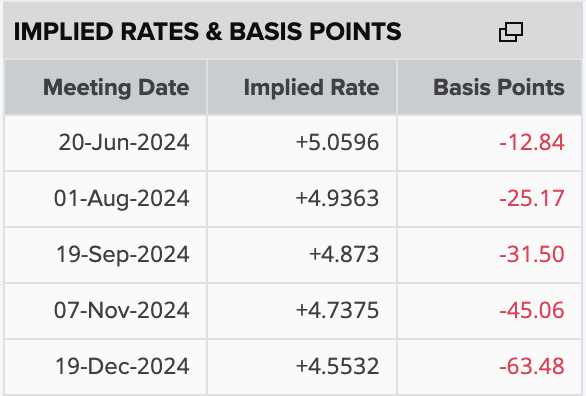GBP/USD Latest: focus on US and UK inflation to determine where to go next
GBP/USD trades with caution ahead of the US and UK inflation reports
The UK labour market report released this morning showed job losses, rising unemployment and persistent wage pressures. But the report doesn’t seem to have changed much for the market as the focus remains on the two inflation reports that will be delivered before the next BoE meeting in June. GBP/USD was a marginal move higher after the release but the pair pulled back to 1.2509 as the US dollar picked up some buying support ahead of the US PPI release later this afternoon. The momentum is likely to be dominated from the dollar side of the trade this week as investors digest how price pressures have evolved in the US. A stronger-than-expected reading would continue to push back on the hopes of rate cuts from the Federal Reserve, likely propelling the dollar higher again, weighing on GBP/USD further towards 1.2450. Conversely, a weakening in inflationary pressures could reignite risk appetite, weighing on the dollar and allowing GBP/USD to resume the bullish drive to break and hold above 1.26.
GBP/USD daily chart
 (Past performance is not a reliable indicator of future results)
(Past performance is not a reliable indicator of future results)
From the UK side, next week will be a big one as the April CPI data will be released on Wednesday. Investors will want to see whether Bailey’s claims that inflation has dropped significantly in April are true. The updated projections from the Bank of England at their meeting last week showed CPI returning to 2% in Q2 of this year. If so, that would mean the central bank is one step closer to cutting rates, the question is whether June is too soon. Current pricing from Reuters shows a 25bps cut fully priced in for August, but there are 12.8 basis points priced in for June, roughly a 50/50 chance of a cut. The data next week will be key in adjusting these expectations, with a significant drop in CPI likely pushing the balance in favour of a cut in June, which could propel the FTSE 100 even higher, but weigh on GBP based on rate differentials with other currencies.
Market-implied rate cuts from the BoE in 2024
 Source: refinitiv
Source: refinitiv